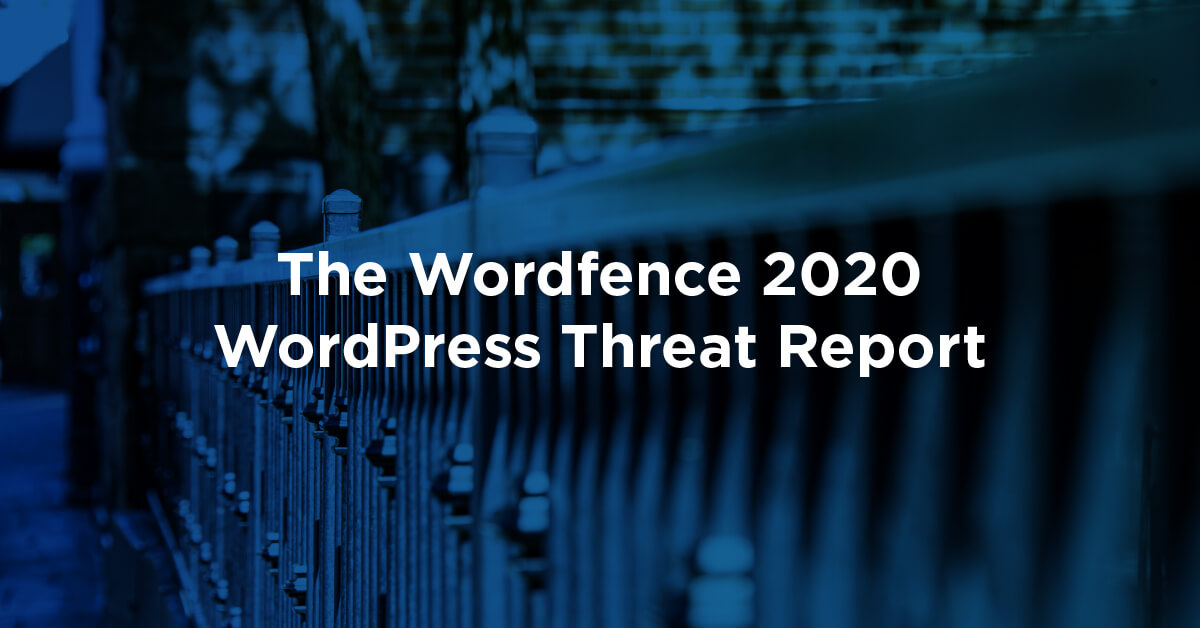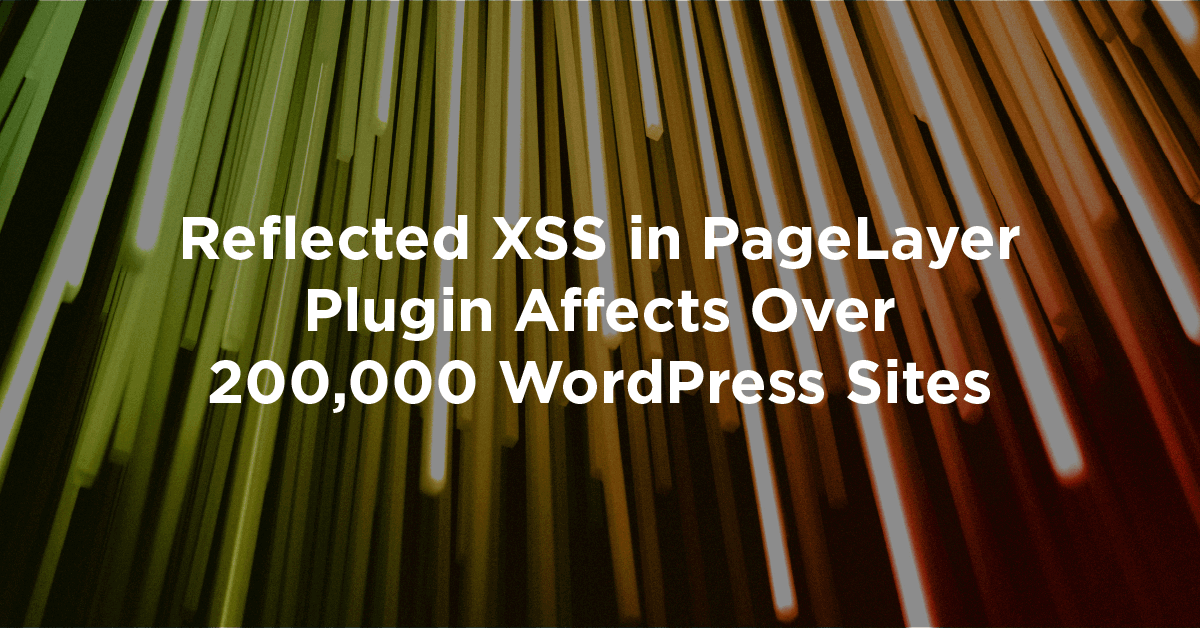This site uses cookies in accordance with our Privacy Policy.
Wordfence Research and News
Category: Research

Unpatched Vulnerability: 50,000 WP Sites Must Find Alternative for Contact Form 7 Style
On December 9, 2020, the Wordfence Threat Intelligence team discovered a Cross-Site Request Forgery (CSRF) to Stored Cross Site Scripting (XSS) vulnerability in Contact Form 7 Style, a WordPress plugin installed on over 50,000 sites.

Machine Learning Gives Wordfence an Advantage
Wordfence is the leader in WordPress security, protecting over 4 million WordPress sites from malicious attacks.

The Wordfence 2020 WordPress Threat Report
Over the course of 2020, and in the process of protecting over 4 million WordPress customers, the Wordfence Threat Intelligence team gathered a massive amount of raw data from attacks targeting WordPress and infection trends, in addition to the malware samples gathered by our Site Cleaning team.

Multiple Vulnerabilities Patched in Orbit Fox by ThemeIsle Plugin
On November 19, 2020, our Threat Intelligence team responsibly disclosed two vulnerabilities in Orbit Fox by ThemeIsle, a WordPress plugin used by over 400,000 sites.

Who Attacked SolarWinds and Why WordPress Users Need to Know
Chloe Chamberland is a threat analyst and member of the Wordfence Threat Intelligence Team.

The NoneNone Brute Force Attacks: Even Hackers Need QA
For the last few weeks we’ve seen and blocked an increase in brute-force, credential stuffing, and dictionary attacks targeting the WordPress xmlrpc.php endpoint, on some days exceeding 150 million attacks against 1.9 million sites in a 24-hour period.

Reflected XSS in PageLayer Plugin Affects Over 200,000 WordPress Sites
On November 4, 2020, the Wordfence Threat Intelligence team found two reflected Cross-Site Scripting (XSS) vulnerabilities in PageLayer, a WordPress plugin installed on over 200,000 sites.

Large-Scale Attacks Target Epsilon Framework Themes
On November 17, 2020, our Threat Intelligence team noticed a large-scale wave of attacks against recently reported Function Injection vulnerabilities in themes using the Epsilon Framework, which we estimate are installed on over 150,000 sites.

Critical Privilege Escalation Vulnerabilities Affect 100K Sites Using Ultimate Member Plugin
On October 23, 2020, our Threat Intelligence team responsibly disclosed several vulnerabilities in Ultimate Member, a WordPress plugin installed on over 100,000 sites.

Object Injection Vulnerability in Welcart e-Commerce Plugin
On October 6, 2020, our Threat Intelligence team discovered a High-Severity Object Injection vulnerability in Welcart e-Commerce, a WordPress plugin with over 20,000 installations that claims top market share in Japan.
